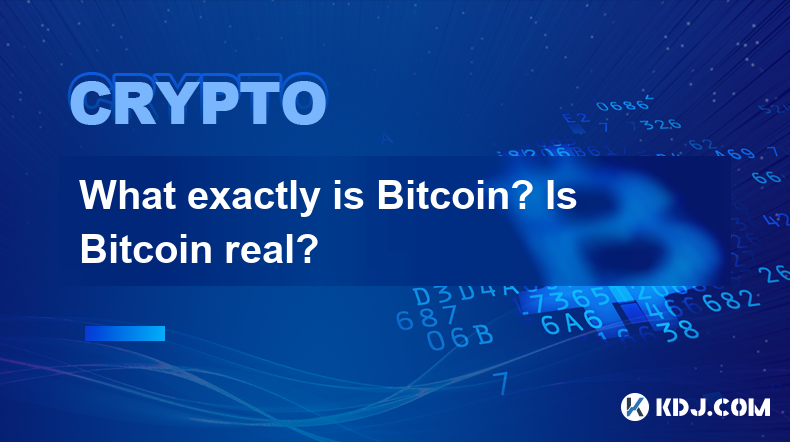-
 Bitcoin
Bitcoin $104,371.9810
1.80% -
 Ethereum
Ethereum $2,685.5320
8.30% -
 XRP
XRP $2.5704
1.18% -
 Tether USDt
Tether USDt $1.0003
0.03% -
 Solana
Solana $181.9314
5.29% -
 BNB
BNB $664.8948
0.26% -
 USDC
USDC $1.0001
0.02% -
 Dogecoin
Dogecoin $0.2381
3.43% -
 Cardano
Cardano $0.8266
1.22% -
 TRON
TRON $0.2710
-0.82% -
 Sui
Sui $4.0586
3.16% -
 Chainlink
Chainlink $17.6122
5.50% -
 Avalanche
Avalanche $25.7989
4.23% -
 Stellar
Stellar $0.3148
0.06% -
 Shiba Inu
Shiba Inu $0.0...01630
3.43% -
 Pi
Pi $1.3031
9.13% -
 Hedera
Hedera $0.2165
0.72% -
 Hyperliquid
Hyperliquid $25.8137
4.99% -
 Toncoin
Toncoin $3.3869
1.49% -
 Bitcoin Cash
Bitcoin Cash $412.8887
0.71% -
 Polkadot
Polkadot $5.1819
1.84% -
 UNUS SED LEO
UNUS SED LEO $8.7101
1.64% -
 Litecoin
Litecoin $103.8274
1.98% -
 Monero
Monero $342.0745
1.91% -
 Pepe
Pepe $0.0...01472
8.17% -
 Bitget Token
Bitget Token $4.8216
1.49% -
 Dai
Dai $1.0001
0.01% -
 Ethena USDe
Ethena USDe $1.0009
0.01% -
 Uniswap
Uniswap $7.1169
3.60% -
 Bittensor
Bittensor $469.1193
3.57%
What exactly is Bitcoin? Is Bitcoin real?
Bitcoin, the pioneering cryptocurrency, has established itself as a genuine and increasingly accepted digital currency with a unique combination of decentralization, security, and global reach.
Jan 24, 2025 at 04:12 pm

Key Points
- Understanding Bitcoin's Definition and Concept
- Exploring Bitcoin's Existence and Legitimacy
- Examining Bitcoin's History and Origins
- Delving into Bitcoin's Underlying Technology
- Uncovering Bitcoin's Role within the Cryptocurrency Landscape
- Analyzing Bitcoin's Advantages and Disadvantages
- Assessing Bitcoin's Future Prospects
What Exactly is Bitcoin?
Bitcoin, the brainchild of the enigmatic Satoshi Nakamoto, emerged in 2009 as the pioneering cryptocurrency. At its core, Bitcoin is a decentralized digital currency that facilitates secure, anonymous, and borderless transactions without the need for intermediaries like banks.
Unlike traditional currencies, such as the US dollar or euro, Bitcoin exists solely in the digital realm, leveraging a distributed ledger technology known as the blockchain to maintain a secure and tamper-proof record of all transactions. This decentralized structure liberates Bitcoin from the control of central authorities or financial institutions.
Is Bitcoin Real?
Despite its virtual nature, Bitcoin is undeniably real, possessing a tangible value that fluctuates based on market forces. Its reality is manifested in the following ways:
- Market Capitalization: As one of the most valuable cryptocurrencies, Bitcoin boasts a substantial market capitalization, making it a recognized and traded asset.
- Adoption and Usage: Bitcoin is widely accepted as a legitimate form of payment by an increasing number of merchants and individuals globally.
- Technological Infrastructure: The blockchain technology underpinning Bitcoin is a robust and proven system that ensures the security and integrity of transactions.
Understanding Bitcoin's Role within the Cryptocurrency Landscape
Bitcoin occupies a pivotal position within the realm of cryptocurrencies as:
- The Firstborn: Bitcoin's pioneering role as the genesis of cryptocurrencies has solidified its place as a trailblazer in the field.
- Market Leader: Bitcoin maintains a dominant presence in the cryptocurrency market, accounting for a significant portion of its overall value.
- Standard-Bearer: Bitcoin serves as a benchmark and reference point for other cryptocurrencies, owing to its established reputation and widespread recognition.
Analyzing Bitcoin's Advantages and Disadvantages
Like any financial instrument, Bitcoin has its merits and drawbacks:
Advantages:
- Decentralization: Bitcoin eliminates the influence of central authorities, empowering users to manage their finances autonomously.
- Security: The blockchain technology provides unparalleled security, safeguarding transactions from unauthorized access and fraud.
- Global Reach: Bitcoin transcends geographical borders, enabling seamless transactions across nations.
Disadvantages:
- Volatility: Bitcoin's value is subject to significant fluctuations, making it a volatile investment option.
- Regulatory Uncertainties: Regulatory frameworks for Bitcoin vary across jurisdictions, introducing potential legal complexities.
- Limited Acceptance: While Bitcoin's adoption is growing, it is still not universally accepted as a form of payment.
Assessing Bitcoin's Future Prospects
Predicting Bitcoin's future trajectory is a speculative endeavor, but its potential lies in:
- Technological Advancements: Ongoing innovations in blockchain technology could enhance Bitcoin's scalability, transaction speed, and security.
- Increased Adoption: As more individuals and businesses embrace Bitcoin, its use cases expand, boosting its value and viability.
- Growing Recognition: Bitcoin's status as a legitimate asset class is gaining traction, potentially attracting institutional investors and further solidifying its position.
FAQs
Q: What is the blockchain technology behind Bitcoin?
A: The blockchain is a distributed, immutable ledger that records all Bitcoin transactions, providing a secure and transparent system.
Q: How do I buy Bitcoin?
A: Bitcoin can be purchased through cryptocurrency exchanges or specialized platforms, using fiat currency or other cryptocurrencies.
Q: What is the difference between Bitcoin and fiat currency?
A: Bitcoin is a decentralized digital currency, while fiat currency is issued and controlled by central banks, giving it intrinsic value.
Q: What are the risks associated with investing in Bitcoin?
A: Market volatility, regulatory uncertainties, and security breaches pose potential risks to investors.
Q: Is Bitcoin a safe investment?
A: The safety of Bitcoin investment depends on factors such as market conditions, personal risk tolerance, and adequate research.
Disclaimer:info@kdj.com
The information provided is not trading advice. kdj.com does not assume any responsibility for any investments made based on the information provided in this article. Cryptocurrencies are highly volatile and it is highly recommended that you invest with caution after thorough research!
If you believe that the content used on this website infringes your copyright, please contact us immediately (info@kdj.com) and we will delete it promptly.
- Bitcoin (BTC) Price Acceleration Is Unfolding Alongside a Major Expansion in Stablecoin Liquidity
- 2025-05-14 06:05:13
- NEIRO, a Meme-Based Cryptocurrency, Rose by 47.37% in the Last 24 Hours, Reaching $0.000651
- 2025-05-14 06:05:13
- FloppyPepe (FPPE) Joins PEPE, ANDY, And WOLF As The Next Matt Furie Meme Coin To Explode 20,000% In 2025
- 2025-05-14 06:00:13
- The Infinite Node Foundation Announces It Has Acquired CryptoPunks from Yuga Labs
- 2025-05-14 06:00:13
- Circle Completes Transition to Native USDC on Sonic, Launching CCTP V2
- 2025-05-14 05:55:13
- The US and China Have Agreed to a Temporary Trade Deal, Boosting Bitcoin and Altcoins
- 2025-05-14 05:55:13
Related knowledge

What is Ethereum’s Slashing mechanism and how to punish malicious behavior?
Feb 20,2025 at 03:08am
Key PointsOverview of slashingDifferent types of slashing in EthereumIncentives and consequences of slashingIdentifying and reporting slashed validatorsOngoing discussions and potential improvementsEthereum's Slashing Mechanism: Punishing Malicious BehaviorEthereum's slashing mechanism is an essential tool for ensuring network security and punishing mal...

What is the verifier node of Ethereum and how to become a verifier?
Feb 19,2025 at 06:00pm
The Verifier Node of Ethereum: A Comprehensive GuideKey Points:What is a Verifier Node?How to Become a Verifier NodeResponsibilities and Rewards of a Verifier NodeMinimum Requirements for Becoming a Verifier NodePotential Difficulties in Running a Verifier Node1. What is a Verifier Node?A Verifier Node is an independent entity on the Ethereum network th...

What is Ethereum’s staking, and how to participate and earn money?
Feb 19,2025 at 04:37pm
Key Points:Understanding Ethereum's Staking MechanismSteps to Participate in StakingBenefits and Rewards of StakingSecurity and Risk ConsiderationsTechnical Requirements and Hardware OptionsPotential Challenges and Troubleshooting TipsFAQs on Ethereum StakingWhat is Ethereum's Staking?Proof-of-Stake (PoS) is a consensus mechanism used in blockchain netw...

What is Ethereum’s DAO (Decentralized Autonomous Organization) and how does it work?
Feb 20,2025 at 03:12am
Key PointsDefinition and Structure of a DAOGovernance and Decision-Making in DAOsBenefits and Use Cases of DAOsChallenges and Limitations of DAOsWhat is Ethereum's DAO (Decentralized Autonomous Organization) and How Does It Work?Definition and Structure of a DAOA Decentralized Autonomous Organization (DAO) is an innovative governance and management fram...

What is Ethereum's multi-signature wallet and how to improve security?
Feb 20,2025 at 02:18pm
Key Points:Understanding the Concept of a Multi-Signature WalletBenefits and Drawbacks of Multisig WalletsRequirements for Setting Up a Multisig WalletStep-by-Step Guide to Generating a Multisig WalletImplementing Strategies for Enhanced Security1. Understanding the Concept of a Multi-Signature WalletA multi-signature (multisig) wallet in the Ethereum e...

What is Ethereum's oracle and how to provide data for smart contracts?
Feb 21,2025 at 01:30am
Key Points:Understanding the concept of oracles in EthereumExploring different types of oraclesDetailed guide on how to provide data for smart contractsAddressing potential challenges and considerationsWhat is Ethereum's Oracle?Oracles are crucial components in the Ethereum ecosystem, enabling smart contracts to access real-world data and off-chain even...

What is Ethereum’s Slashing mechanism and how to punish malicious behavior?
Feb 20,2025 at 03:08am
Key PointsOverview of slashingDifferent types of slashing in EthereumIncentives and consequences of slashingIdentifying and reporting slashed validatorsOngoing discussions and potential improvementsEthereum's Slashing Mechanism: Punishing Malicious BehaviorEthereum's slashing mechanism is an essential tool for ensuring network security and punishing mal...

What is the verifier node of Ethereum and how to become a verifier?
Feb 19,2025 at 06:00pm
The Verifier Node of Ethereum: A Comprehensive GuideKey Points:What is a Verifier Node?How to Become a Verifier NodeResponsibilities and Rewards of a Verifier NodeMinimum Requirements for Becoming a Verifier NodePotential Difficulties in Running a Verifier Node1. What is a Verifier Node?A Verifier Node is an independent entity on the Ethereum network th...

What is Ethereum’s staking, and how to participate and earn money?
Feb 19,2025 at 04:37pm
Key Points:Understanding Ethereum's Staking MechanismSteps to Participate in StakingBenefits and Rewards of StakingSecurity and Risk ConsiderationsTechnical Requirements and Hardware OptionsPotential Challenges and Troubleshooting TipsFAQs on Ethereum StakingWhat is Ethereum's Staking?Proof-of-Stake (PoS) is a consensus mechanism used in blockchain netw...

What is Ethereum’s DAO (Decentralized Autonomous Organization) and how does it work?
Feb 20,2025 at 03:12am
Key PointsDefinition and Structure of a DAOGovernance and Decision-Making in DAOsBenefits and Use Cases of DAOsChallenges and Limitations of DAOsWhat is Ethereum's DAO (Decentralized Autonomous Organization) and How Does It Work?Definition and Structure of a DAOA Decentralized Autonomous Organization (DAO) is an innovative governance and management fram...

What is Ethereum's multi-signature wallet and how to improve security?
Feb 20,2025 at 02:18pm
Key Points:Understanding the Concept of a Multi-Signature WalletBenefits and Drawbacks of Multisig WalletsRequirements for Setting Up a Multisig WalletStep-by-Step Guide to Generating a Multisig WalletImplementing Strategies for Enhanced Security1. Understanding the Concept of a Multi-Signature WalletA multi-signature (multisig) wallet in the Ethereum e...

What is Ethereum's oracle and how to provide data for smart contracts?
Feb 21,2025 at 01:30am
Key Points:Understanding the concept of oracles in EthereumExploring different types of oraclesDetailed guide on how to provide data for smart contractsAddressing potential challenges and considerationsWhat is Ethereum's Oracle?Oracles are crucial components in the Ethereum ecosystem, enabling smart contracts to access real-world data and off-chain even...
See all articles






















































































